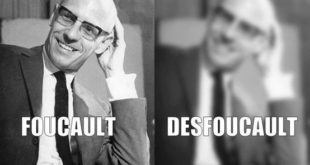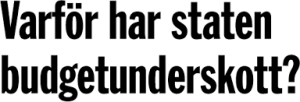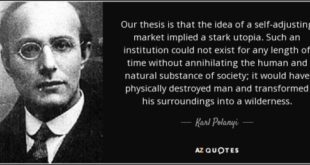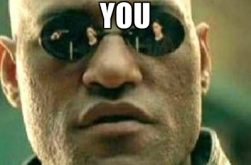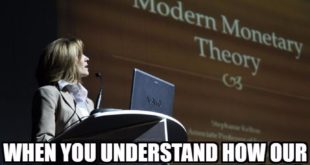Although somewhat critical of its reductive elements, Foucault found certain attractive features in the ideal or programmatic form imagined by American neoliberalism, namely, that it envisages a kind of regulation outside sovereign, disciplinary, and biopolitical forms, that it regulates without the fabrication of subjectivities and in a manner that optimizes difference and tolerates minority groups and practices. Second, from a policy perspective, Foucault showed a certain...
Read More »Ricardiansk ekvivalens och budgetunderskott
Få frågor inom politik och ekonomi diskuteras nu för tiden så mycket — och förstås så lite — som offentlig skuld. Många höjer sina röster och uppmanar till att minska skulden, men få förklarar varför och på vilket sätt en minskning av skulden skulle främja en bättre ekonomi eller ett rättvisare samhälle. Dessutom finns det inga gränser för alla de katastrofer som en stor offentlig skuld förväntas leda till — arbetslöshet, inflation, högre räntor, lägre produktivitetstillväxt,...
Read More »Irrational Exuberance — Robert Shiller’s modern classic
Irrational Exuberance — Robert Shiller’s modern classic At the beginning of the year 2000, a book titled Irrational Exuberance was published. The American economics professor and Nobel laureate Robert Shiller warned that the extensive deregulation in the financial market that had taken place since the Thatcher-Reagan era had led to a rapid credit expansion. Banks and financial institutions saw a skyrocketing increase in lending, and the pursuit of gaining...
Read More »‘Self-adjusting’ markets
Paul Krugman has repeatedly over the years argued that we should continue to use mainstream economics hobby horses like IS-LM and AS-AD models. Here’s one example: So why do AS-AD? … We do want, somewhere along the way, to get across the notion of the self-correcting economy, the notion that in the long run, we may all be dead, but that we also have a tendency to return to full employment via price flexibility. Or to put it differently, you do want somehow to make clear the...
Read More »Economic methodology — Lawson, Mäki, and Syll
Economic methodology — Lawson, Mäki, and Syll We are all realists and we all — Mäki, Cartwright, and I — self-consciously present ourselves as such. The most obvious research-guiding commonality, perhaps, is that we do all look at the ontological presuppositions of economics or economists. Where we part company, I believe, is that I want to go much further. I guess I would see their work as primarily analytical and my own as more critically constructive or...
Read More »Lönerna driver inte inflationen
Lönerna driver inte inflationen Stephanie Kelton har blivit en fixstjärna för vänstern och kritiker till gängse nationalekonomisk teori. I helgen besökte hon Stockholm. Hon är kritisk till hur inflationen bekämpas: ”Räntehöjningar är ett väldigt trubbigt verktyg” … Kelton besöker Stockholm mitt under en internationell inflationskris. Första frågan till henne under intervjun ett par timmar före hennes medverkan på konferensen blir därför hur inflationen...
Read More »Robert Lucas (1937-2023)
Economic theory, like anthropology, ‘works’ by studying societies which are in some relevant sense simpler or more primitive than our own, in the hope either that relations that are important but hidden in our society will be laid bare in simpler ones, or that concrete evidence can be discovered for possibilities which are open to us which are without precedent in our own history. Unlike anthropologists, however, economists simply invent the primitive societies we study, a...
Read More »Vad kan du om ekonomi?
Vad kan du om ekonomi? För att få svar på det kan du ju testa ekonomiquizet i dagens Sydsvenskan!
Read More »Understanding MMT
MMT is, first and foremost, a balance sheet approach to macroeconomics. At its very core lie reserve accounting, then deposit accounting, and then sectoral balances accounting. There is very little behaviour in any of this. Equilibrium rules as all balances balance – in both flows and stocks – and there are no assumptions apart from the existence of a central bank, a Treasury, a banking system and some households and firms. MMT can only be learned by mastering its balance...
Read More »A Baconian view on the ’empirical turn’ in economics
A Baconian view on the ’empirical turn’ in economics The axioms now in use have been derived from a meagre and narrow experience and from a few particulars of most common occurrence… Nor should it count for much that … he often cites experiments. For he had come to his decision beforehand, without taking proper account of experience in setting up his decisions and axioms; but after laying down the law according to his own judgement, he then brings in...
Read More » Heterodox
Heterodox

